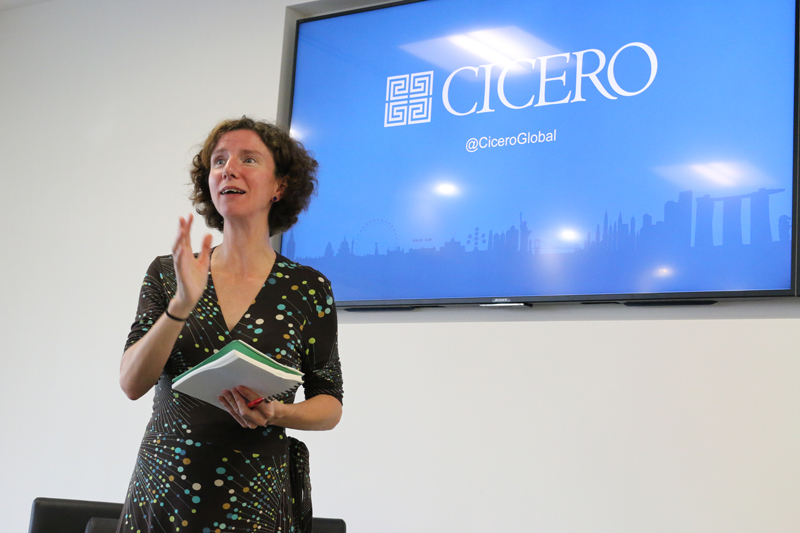Amidst the covid-19 pandemic which has gripped the world, the health challenges which we faced before are still pervasive: The developed world must meet the challenge of increasing its health expenditure to meet rising healthcare needs of an aging population while low-income countries across the world battle to reduce healthcare inequality and expand coverage.
Within this climate, co-operative healthcare services have been growing and “according to the [International Co-operative Association] and B20 figures, some 100 million households worldwide enjoy access to healthcare thanks to cooperatives” Health co-operatives are healthcare organisation owned democratically by healthcare staff, those receiving care or a mixture of the two.
These organisations engage in a “wide range of services, covering risk protection, prevention and soft healthcare service delivery, pharmaceutical product distribution and healthcare clinic management”. Clearly, health co-operatives are a significant and growing force within the global healthcare system, so much so that the UN have acknowledged their importance in achieving Universal Health Care and the Sustainable Development Goals.
To some, the co-operative model and the healthcare industry may appear to be strange bed fellows, but there is a rich historical tradition of people organising collectively to improve healthcare. Whether it’s the miner’s medical aid schemes formed in early 1900s Welsh mining communities or Argentina’s healthcare worker-owned co-operatives established in the 1990’s and accelerated by the 2001 economic crisis, there is a precedent for a co-operative model in healthcare. Some countries like Japan have extensive health co-operative industries which dominate the care market and others such as the Ambulance cooperatives in Canada stand out as bold alternatives. Regardless, health co-operatives worldwide are a flourishing industry.
Health co-operatives tend to step in where market and state forces have failed and provide a route for workers, consumers and producers to jointly own, manage and develop their own healthcare services collaboratively. Co-operatives have some advantages over the private and state sector in providing health services, in that they are not profit-driven but also include the democratic participation of the communities they serve as a foundational principle. Given Marmot’s emphasis on the need for community participation in healthcare to address the social determinant of health, co-operatives seem best placed to fulfil this need. Jose Perez of the International Health Co-operative Organisation, believes that in some contexts health co-operatives can be “a good option for those countries with precarious health systems that need building healthcare services from scratch”, therefore replacing or in some cases entirely circumventing the development of a private or public-based system. Inspiration here flows from the example of UNIMED in Brazil, a federation of worker-owned health co-operatives which provide all the services that a total healthcare system would need. He believes this is a function of their ability to “independent of the health system’s characteristics where they operate…efficiently manage to adapt and reinvent themselves over time”. Although, he concedes that this is very much context dependent.
Where health co-operatives are perhaps not best suited to provide a so-called total or whole system, they can instead fill the gaps where public or private systems have fallen short, acting as a supplementary healthcare service. Perez understands this to be produced by the co-operative tendency to “rather than [compete] with public providers…fill gaps complementing the products and resources provided by other agents”, agents here being public or private institutions. This type of service can be seen in Rwanda where former sex workers have formed health co-operatives to address their collective need for social and health treatment for HIV and AIDS.
In the development of universal health care globally Perez envisions Health co-operatives working in this capacity as “key partners for the improvement of health coverage”. In this sense, they work with health institutions to address the health needs of marginalised or underserved communities. He provides the example of Italy with their “multi-stakeholder (owned by both those receiving and giving the care), health cooperatives” which are “well integrated into the Italian healthcare system” providing employment for over 386,000 people.
The decentralised nature of co-operatives concerns some in the healthcare field who are used to highly centralised top-down institutions, particularly when faced with a public health crisis like the current SARS CoV-2 pandemic. However, in this area they could also be beneficial: Perez outlines how his own health co-operative, the Fundacion Espriu in Spain, is “working hand [in] hand with the health authorities” to provide “resources and facilities” to the ministry of health, in some cases postponing interventions “to give priority to those affected by COVID-19”.
However, we inevitably arrive at the question of finance, which haunts grassroots organisations of all stripes, including health co-operatives. Jose concedes that “like any enterprise, [co-operatives] need access to a certain amount of capital and appropriate funding in order to pursue their business activities”. Afterall, health co-operatives are ultimately an enterprise model which operates within the market. Raising capital can be tricky for a co-operative and revenue sources are diverse, typically coming from “members themselves or from retained surpluses generated by the cooperative business” as well as “outsiders like banks, suppliers, government or donor agencies.”
However, including a wider source of stakeholders, particularly banks and other donor agencies can lead to conflict and deviation from the interests of ordinary members. According to JP the key issue then “is how to secure reliable financing while guaranteeing member control”. To address this issue, federations of health co-operatives have been formed to develop larger financial risk pools which in combination with strong credit union support could form developed financial bases from which to launch new health co-operative nodes and sustain current initiatives.
According to Perez, co-operatives have a role to play in development settings too, acting as an “efficient mechanism for development”. Perez believes that having the democratic contribution of members and a diverse stakeholder governance structure provides them with a firm footing in the community in which they are situated, providing them with “unique views” and therefore a greater “impact on [the] development processes”. In this way, health co-operatives provide a platform, mutual support and collective power to communities that lack it the most: a means through which to develop their own health infrastructure and tackle the health inequalities they see as the most pressing and acute.
A large issue facing healthcare globally is Big Pharma and its stranglehold on drug prices and the direction of drug research and development, often not in the direction of the neglected tropical diseases facing many lower- and middle-income countries. To combat this it has been suggested that pharmaceutical companies could also be brought under the co-operative banner to provide a ‘third-way’ between corporatism and outright nationalisation.
Expanding on the case of big pharma, health co-operatives tend to take a holistic approach and don’t only focus on healthcare delivery but tend to shift the idea of health from the reactive treatment based model to one that is grounded in wellbeing and prevention. This has been extended to the woefully inadequate care system in the UK. A cause carried passionately by MP James Murray in a parliamentary debate on user-led social care. Social care constitutes a large blind spot for both public and private institutions and is well placed to be delivered by co-operative organisations.
As Cicero’s oft-coined phrase goes ‘the health of the people is the supreme law.’ It is only in this way that we can begin to understand and fundamentally change our healthcare systems. As covid-19 has so sadly proven, the health of one is the health of all. And for too long health has been either too expensive to be fair or too undemocratic to be effective. In this gaping hole, health co-operatives constitute a democratic, community-orientated and networked vision of healthcare, which is sorely needed.






2 comments